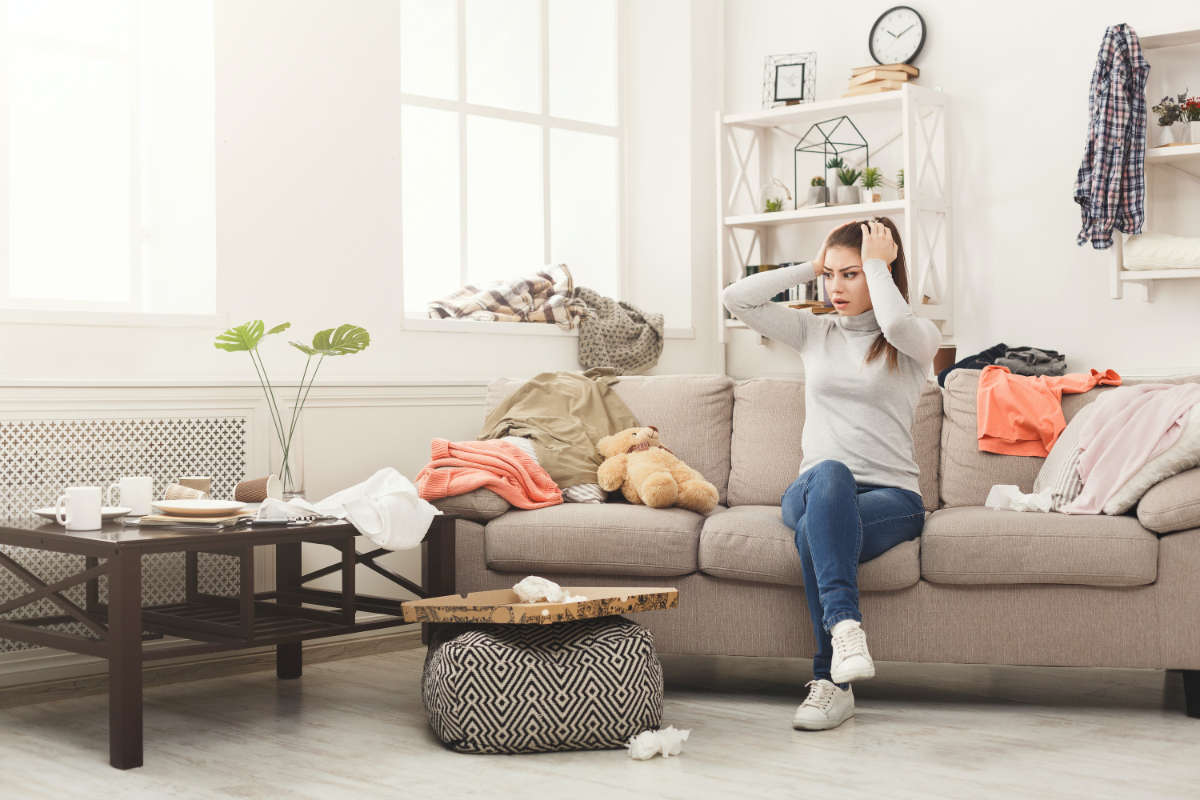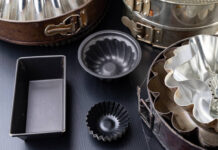Since starting her company This Girl Can Organise (thisgirlcanorganise.com) three years ago, ex-investment banker Nicola Lewis has helped celebrities including Gemma Collins, Ferne McCann and Katie Piper chuck out their clutter and reorganise their lives. You too can benefit from her expertise with her book Mind Over Clutter – the ultimate guide to cleaning and clearing your home, room by room, and in so doing, improve your mental wellbeing.
“Although a clean environment won’t necessarily solve all your problems, it can have an enormous impact on your emotional wellbeing and outlook, and make all the difference to your life,” she writes.
“When I started the job, I didn’t see the link with mental wellbeing. But when clients became distressed pulling out certain items, I quickly adapted the rule that I was in control of the situation, and I was here to help them.
“That quickly made them feel calmer if they had someone holding their hand doing the task.”
She notes that having unnecessary clutter lying around can act like a visual noise, each item potentially triggering an alarm bell in your head. “The truth is, most of us have so much stuff either lying around in full view or shoved inside cupboards, that it’s sometimes impossible to find what we are looking for when we want it,” she writes.
US research has found that cluttered homes can be stressful to live in. Yet many people avoid reorganising their things and throwing items away.
“Consequently, they sometimes end up living in a chaotic state, surrounded by mess, which can trigger a physiological response, usually in the form of stress and raised cortisol levels.”
“Cortisol is the body’s main stress hormone and when it increases, it can lead to a variety of health problems, such as anxiety, headaches, fatigue, insomnia, memory lapses, concentration problems and even depression,” she writes.“When they declutter, however, even with small steps over a period of time, people can start to feel less anxious and better about themselves.”
Bereavement, life changes such as losing your job or divorce, can all lead to feeling the need to surround yourself with comforting things and ending up with clutter, she reflects.
So, how can decluttering help your mental health?
It gives you clarity: “If you walk into a messy room, it acts as a distraction to what you’ve got to do and where you’ve got to go.”
It gives you back some control: After suffering low mood following the birth of her second child, Lewis used tidying and organising her home as therapy.
“That organisation gave me great comfort and a sense of control. I can see that association with others, where they’ve been let down and have lost control of a part of their life.”
She notes in the book that it’s liberating and empowering to purge the stuff you don’t want or need any more. It makes you want to smile and gives you the space to breathe, to be calm and to focus on what’s important to you.
It can be fun: “Put music on when you are having a clear out or tidying up. It helps to deal with a horrible task in a positive light. Surround yourself with things that make you smile. Some people like burning scented candles, others like music, others like opening the windows to let in fresh air and hear birdsong.”

You’ll feel energised: “Having a tidy house gives me so much energy. It means I can focus on the other things that are important, like the family and work. It allows me to be creative.”
Lewis suggests asking yourself if the clutter around you serves a purpose. “In my home, everything I see I like, I love, I use. If I don’t, then it’s gone.”
So, what should you ditch and what should you keep?
Clothes
Store clothes in seasonal order. Put out-of-season clothes into mothproof bags, label them and stick them in the loft.
Lewis doesn’t place time limits on what to chuck and what not to chuck. But when she takes a bag out of the loft with the change of season, if she recalls that she didn’t wear a particular item last year, she will ditch it.
“I do tend to say, if you’ve had something and not worn it for two years, it needs to go. And if you have clothes in your wardrobe that still have tags on them, you need to question the worth of them. If you bought a dress to lose weight [to get] into, hang it up so you can see it and it acts as a goal. If not, it needs to go.”
Make-up
Watch for the recommended use-by dates on make-up items including creams and mascaras, which might be 12 months or less from the day of opening. Ditch anything which is out of date. Lipsticks tend to be six to 12 months, mascara might be less. Mark suncreams with a Sharpie as soon as you open them to easily know when they are going to expire.
Kitchen equipment
“We’ve gone through a decade of watching chefs on TV and have been suckered into buying their books, their products and gadgets. We’ve got food processors and smoothie makers,” says Lewis. Consider if you actually use an item and if you could see it, would you use it more often? If the answer is no to both, it can go.
Don’t save anything for best – use it all the time. If you have excess glasses and crockery you bring out at Christmas, find a place in a dresser or cupboard in another room to house them.
Food
Clear out your food cupboards and throw away anything past its use-by date. Write a list of what you do have and check that before you go shopping, so you don’t end up with 12 tins of tomatoes you don’t need. Avoid ‘3 for 2’ deals if you really don’t have the space.
Have a notepad inside your kitchen cupboard to remind yourself of what you need to buy. Transfer cereal, pasta and other dry goods into clear rectangular storage containers which are easy to stack and much tidier than cardboard boxes. Make a meal planner on a Sunday to work out what you’ll be eating in the week ahead, to avoid waste and over-stocking.
Mind Over Clutter by Nicola Lewis is published by Harper Thorsons.
Read more – Why spring cleaning is good for your mental health.
Wise Living Magazine may receive a small commission to help support the running of this site from purchases made from links on this page. Affiliate links do not influence our editorial or articles published by Wise Living.
































































